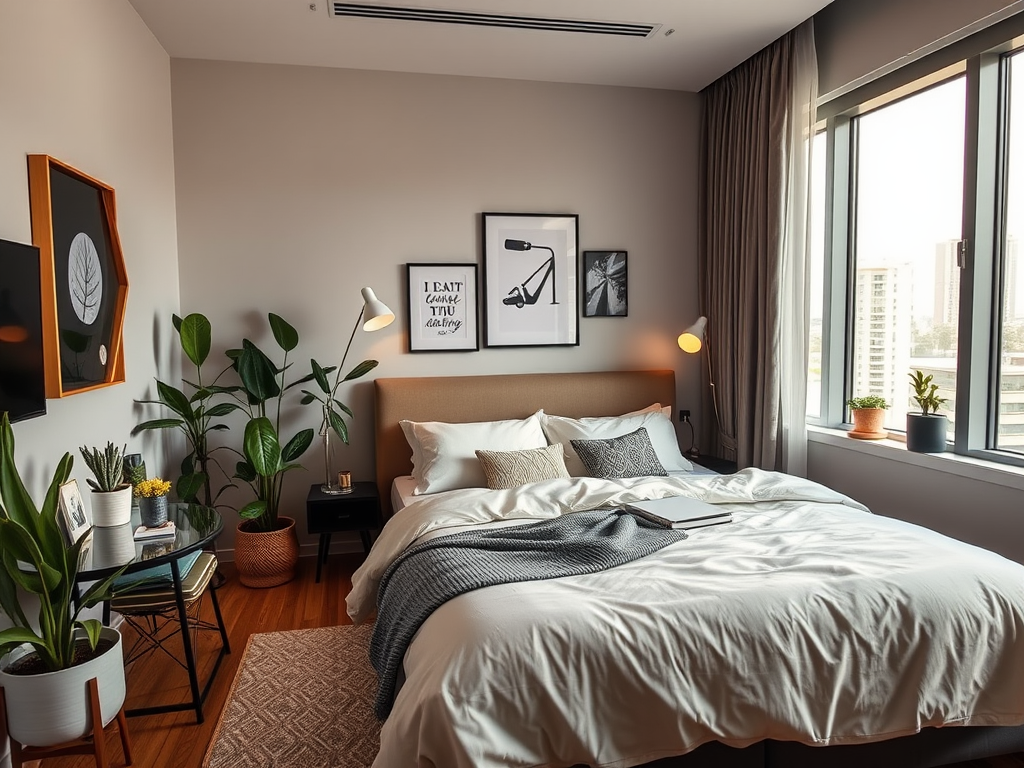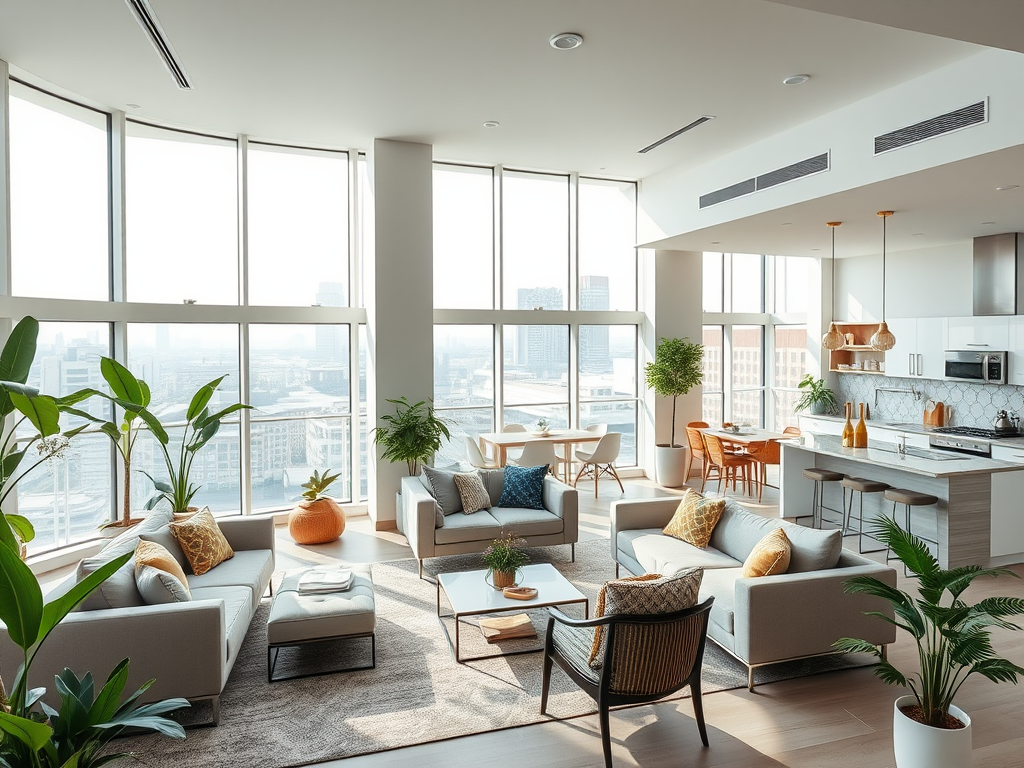Opening a specialty co-living space in Dubai is an exciting venture that caters to the increasing demand for flexible, affordable living arrangements among millennials and expatriates. This unique residential concept not only offers private living quarters but also shared facilities to foster a sense of community. To successfully establish a co-living space, it’s essential to understand the local real estate market, legal requirements, and essential features that will attract your target demographic.
Understanding the Co-Living Concept

The co-living concept merges private and communal living to create a dynamic living environment. This model is not just about providing a roof over one’s head but involves curating an experience that includes events, amenities, and a community spirit. Key features that define a successful co-living space include:
- Private Rooms: Individual living spaces allow residents to enjoy their privacy while being part of a shared community.
- Shared Facilities: Amenities such as kitchens, lounges, and fitness centers encourage interaction among residents.
- Events and Activities: Organizing social events fosters a sense of community and belonging.
- Flexible Lease Agreements: Short and medium-term rentals are appealing to a transient workforce.
- Design and Aesthetics: A well-designed space that reflects the local culture and caters to young professionals is crucial for attracting tenants.
Researching the Market and Location

Dubai’s real estate landscape is competitive. Conducting thorough market research is essential before launching your co-living space. Key aspects to analyze include:
- Target Audience: Identify your target demographic (e.g., young professionals, digital nomads) and understand their needs and preferences.
- Location Analysis: Select areas that are accessible, vibrant, and close to public transport and amenities.
- Competitor Analysis: Study existing co-living spaces to identify gaps in the market and the services they offer.
- Rental Trends: Analyze rental prices and demand trends in your selected area to ensure financial viability.
- Regulatory Environment: Understand local real estate laws, zoning regulations, and licenses required for operating a co-living space.
Navigating Legal Requirements
Opening a co-living space in Dubai involves adhering to various legal requirements. It’s essential to be well-informed and comply to avoid any legal issues. Key legal steps include:
First and foremost, securing the appropriate licenses is crucial. This generally includes a trade license and a real estate license, depending on the nature of your business. Additionally, registering the entity with the Dubai Land Department is vital for legal operations. Another important aspect is ensuring the property complies with health and safety regulations, which can be addressed through inspections and obtaining necessary approvals. Furthermore, developing clear rental agreements that outline terms and conditions for residents will mitigate disputes and enhance the resident experience. Lastly, compliance with the recent laws regarding foreign investment in Dubai’s real estate sector can broaden your investment options.
Designing and Equipping the Co-Living Space
Once you have secured a suitable location and handled all legalities, it’s time to focus on design and equipping the space. Effective design will enhance the living experience and attract tenants. Considerations include:
- Interior Design: Employ professional designers to create aesthetically pleasing communal and private spaces that resonate with your target audience.
- Amenities: Provide valuable features like high-speed internet, laundry facilities, co-working spaces, and recreational areas.
- Safety and Security: Install robust security systems and ensure the property meets safety standards.
- Technology: Implement smart home technology to provide added convenience for residents.
- Eco-Friendly Practices: Integrate sustainable practices to appeal to eco-conscious residents and reduce operational costs.
Marketing Your Co-Living Space
Finally, but equally importantly, marketing your co-living space effectively is key to attracting residents. Utilize various strategies to establish a strong brand presence:
- Online Presence: Build a user-friendly website showcasing the space, amenities, and community vibe, complete with high-quality images and testimonials.
- Social Media Marketing: Use platforms like Instagram and LinkedIn to engage with people and promote events; storytelling about resident experiences can be particularly effective.
- Partnerships: Collaborate with local businesses, universities, and organizations to enhance visibility and provide value-added services to residents.
- Referral Programs: Encourage current residents to refer friends with incentives, enhancing community growth.
- Content Marketing: Publish articles, blog posts, and guides related to living in Dubai to attract online traffic and establish authority in the co-living space niche.
Conclusion
Opening a specialty co-living space in Dubai is a promising opportunity in today’s evolving real estate landscape. By understanding the co-living concept, conducting thorough market research, navigating legal requirements, designing thoughtfully, and effectively marketing your space, you can create a successful venture that meets the needs of modern urban dwellers. With the city’s growing international appeal and diverse population, a well-run co-living space is bound to attract interest and potential residents.
Frequently Asked Questions
1. What licenses do I need to open a co-living space in Dubai?
You will typically need a trade license, a real estate license, and potentially other permits depending on the business model and location. Consulting with a local business advisor is recommended.
2. How do I determine the right location for my co-living space?
Focus on accessibility, proximity to amenities, and trends in real estate demand. Conduct thorough market research to identify residential preferences in Dubai.
3. What amenities should I include in my co-living space?
Consider including high-speed internet, cozy lounges, fully equipped kitchens, fitness facilities, and community areas for socializing and coworking.
4. How can I effectively market my co-living space?
Build a strong online presence, utilize social media channels, form partnerships with local organizations, implement referral programs, and engage in content marketing.
5. What are the benefits of co-living spaces for residents?
Co-living spaces offer community-oriented environments, flexibility in rental agreements, various amenities, and opportunities for networking and social events among residents.

